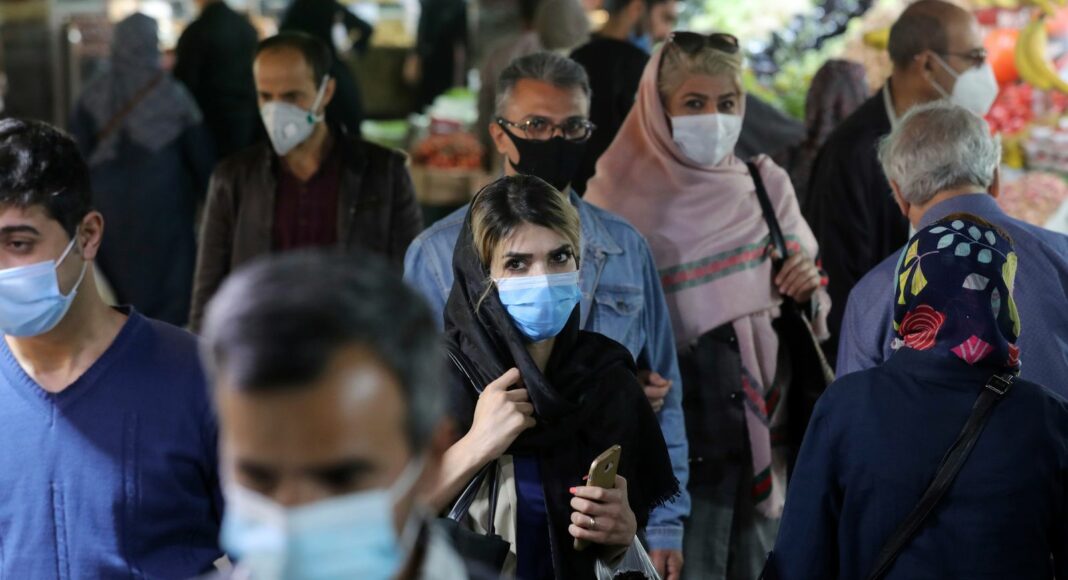Prime Minister Boris Johnson has called for a “new international treaty for pandemic preparedness and response”.
Mr Johnson was joined by French president Emmanuel Macron and German chancellor Angela Merkel as he said the coronavirus pandemic had been a “stark and painful reminder that nobody is safe until everyone is safe”.
Live COVID updates from across the UK and around the world
Newspapers around the world have repeated the plea, which is also backed by countries including Portugal, Romania, Rwanda, Kenya, Greece, Chile, South Korea, Costa Rica, South Africa, Tunisia, Senegal, Spain, Ukraine, and Norway.
They want a treaty similar to the settlement forged after the Second World War to build cross-border cooperation before the next international health crisis.
Writing in The Daily Telegraph, Mr Johnson said: “There will be other pandemics and other major health emergencies.
“No single government or multilateral agency can address this threat alone.
“Together we must be better prepared to predict, prevent, detect, assess and effectively respond to pandemics in a highly-coordinated fashion.
“The COVID-19 pandemic has been a stark and painful reminder that nobody is safe until everyone is safe.”
Subscribe to the Daily podcast on Apple Podcasts, Google Podcasts, Spotify, Spreaker
Speaking to Sky News, Business Secretary Kwasi Kwarteng stressed the importance of international co-operation.
“I think it’s really important that we work collaboratively, internationally, with friends and partners in all countries to deal with what is after all a global problem,” he said.
“The pandemic emerged at the beginning of last year and has caused huge amounts of devastation, it’s set economies back, it’s taken thousands of lives and I think it’s absolutely the right thing for us to work internationally and co-operatively.”
Mr Kwarteng added that when it comes to vaccines, the UK’s immediate priority was to offer jabs to its citizens first, saying: “I think our focus has to be to try and keep Britons safe, we want to work co-operatively as well with other countries.
“But the main priority is to get the vaccine rollout. Let’s just work through our vaccine programme, it’s been quite successful. This isn’t the time to let up on it.
“And then we can go through the road map and then if there are surplus vaccine doses then we can share them, but there are no surpluses at the moment, we’ve still got a huge number to vaccinate.”
Mr Johnson said the commitment would include international cooperation on alert systems, data-sharing, research, and local, regional and global production and distribution of medical and public health counter measures, such as vaccines, medicines, diagnostics and personal protective equipment.
It would also recognise the connection between the health of humans, animals and Earth, with more accountability and shared responsibility.
Mr Johnson added: “At a time when COVID-19 has exploited our weaknesses and divisions, we must seize this opportunity and come together as a global community for peaceful cooperation that extends beyond this crisis.
“Building our capacities and systems to do this will take time and require a sustained political, financial and societal commitment over many years.
“Our solidarity in ensuring that the world is better prepared will be our legacy that protects our children and grandchildren and minimizes the impact of future pandemics on our economies and our societies.
“Pandemic preparedness needs global leadership for a global health system fit for this millennium. To make this commitment a reality, we must be guided by solidarity, fairness, transparency, inclusiveness and equity.”
It comes as concerns grow over the inequality of vaccine distribution worldwide.
The UK and European Union have been bickering over possible export bans while many poorer and middle income countries have barely started their vaccination programmes due to lack of supply or infrastructure.
Mr Johnson added: “We are, therefore, committed to ensuring universal and equitable access to safe, efficacious and affordable vaccines, medicines and diagnostics for this and future pandemics.
“Immunisation is a global public good and we will need to be able to develop, manufacture and deploy vaccines as quickly as possible.”
More than 2.79 million people have died due to the coronavirus pandemic.




